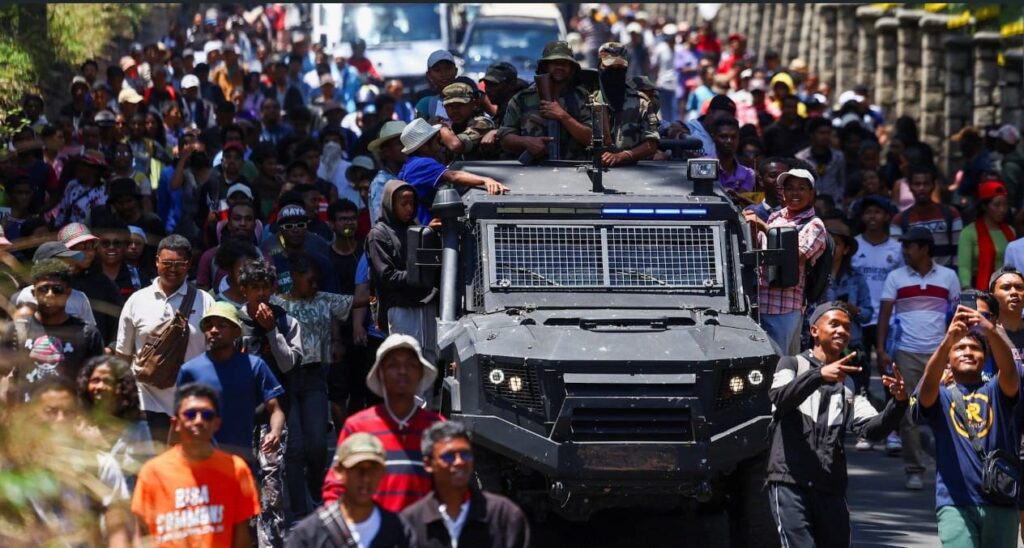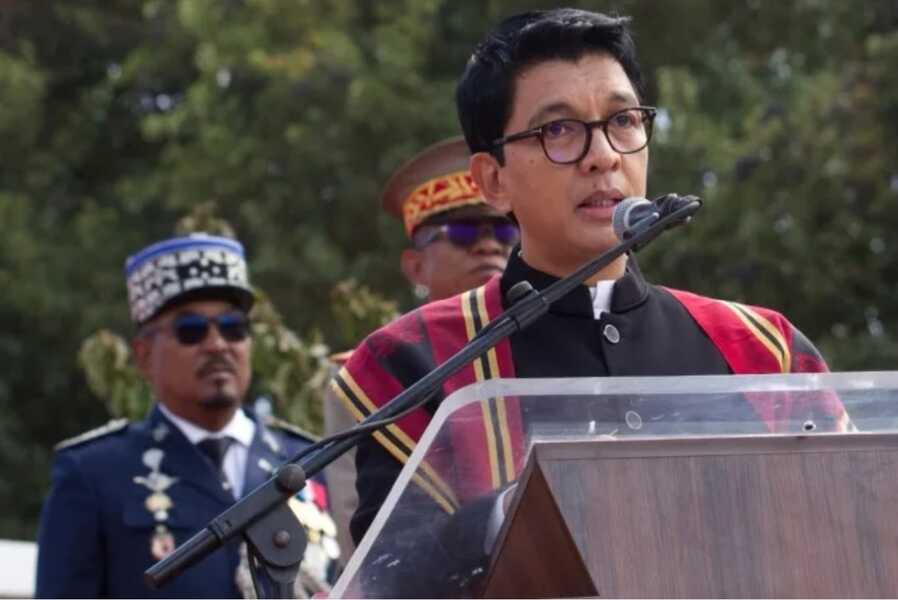Article Today, Madagascar:
Madagascar’s President Andry Rajoelina has fled to France amid intensifying nationwide protests led by the country’s Gen Z youth. The mass demonstrations, which began in late September, escalated rapidly as the army withdrew its support for the embattled leader.

Flight Amid Unrest
Facing mounting pressure, President Rajoelina reportedly left Madagascar aboard a French military aircraft after reaching an agreement with French President Emmanuel Macron. His departure followed days of violent clashes between protesters and security forces. The Senate President, Jean André Ndremanjary, has assumed interim leadership as the country attempts to restore order.
Youth Anger Turns into a National Uprising
What began on September 25 as demonstrations over power and water shortages soon evolved into a broader movement against corruption, misgovernance, and widespread poverty. Despite Madagascar’s vast reserves of valuable minerals such as vanilla, nickel, and cobalt, nearly 75 per cent of its 30 million citizens live below the poverty line.
Young people, frustrated by unemployment and hunger, have taken to the streets accusing the government of enriching elites while neglecting the poor. During Mr. Rajoelina’s 13-year rule, the country’s GDP fell by about 45 per cent, deepening economic hardship. At least 22 people have been killed in the ongoing protests, but demonstrators remain undeterred.
Digital Mobilization and Global Echoes
The protests in Madagascar have drawn inspiration from other Gen Z-led movements across the world. Similar uprisings have previously emerged in Nepal, Morocco, and parts of Africa and Southeast Asia.Through digital platforms and social media coordination, young people have managed to organise leaderless, decentralised movements that challenge entrenched political systems. Countries like Indonesia, the Philippines, Peru, and Kenya have also seen youth-driven campaigns against corruption and inequality gain momentum.
A New Wave of Political Engagement
The events in Madagascar underscore the growing influence of Gen Z in shaping global political discourse. Their digital literacy and collective discontent have transformed local grievances into transnational calls for reform. As Madagascar enters a period of uncertainty, analysts note that this uprising reflects a broader generational demand for transparency, accountability, and equitable governance in the developing world.



